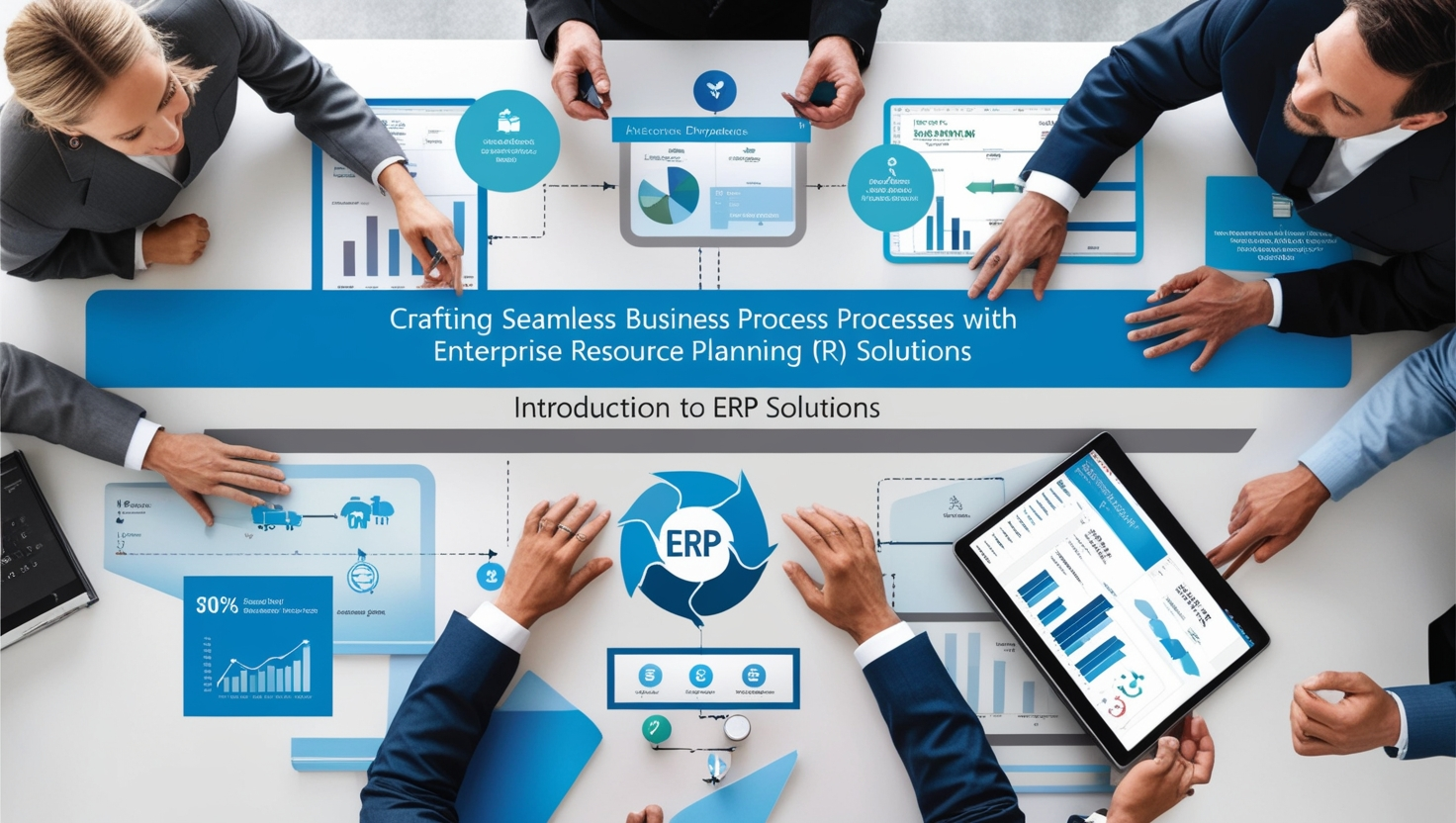
Introduction to ERP Solutions
Enterprise Resource Planning (ERP) solutions have become indispensable tools in the modern business toolkit, serving as the backbone of organizational operations. These systems consolidate critical functions such as finance, supply chain, and human resources, enabling a unified approach to managing a company’s resources and workflows. The essence of ERP lies in its ability to provide a cohesive framework that brings together disparate departments, breaking down silos, and fostering a collaborative business environment. As businesses adapt to the competitive pressures of the digital age, the expertise of a Microsoft Dynamics partner becomes invaluable. Such partners customize ERP systems to meet specific business needs, ensuring seamless integration and maximum utility. This ability to streamline processes and enhance data visibility helps companies not only maintain but expand their market presence in an increasingly competitive landscape.
Benefits of Implementing ERP Systems
The implementation of ERP systems offers a wealth of benefits that can significantly reshape the operational landscape of organizations. The improvement of data accuracy is one of the main benefits. ERP solutions remove the redundancies and inconsistencies that come with manual data input and separate systems by combining several corporate operations into a single system. This results in real-time data visibility and consistency, which is crucial for informed decision-making in dynamic market conditions. Additionally, ERP systems facilitate improved collaboration across departments by creating a unified information repository accessible to all stakeholders. This integrated approach not only reduces operational costs by eliminating the need for multiple software systems but also boosts business agility, allowing organizations to respond swiftly to market changes.
Common Challenges in ERP Implementation
Despite the promising benefits, the path to implementing an ERP system is often fraught with challenges. One significant hurdle is the substantial financial investment required upfront. The cost encompasses not only the purchase of the software but also expenses related to customization, training, and maintenance. Moreover, the time-consuming nature of ERP deployment can disrupt business operations, requiring careful planning and resource allocation. Resistance to change is another common obstacle, as employees may be hesitant to abandon familiar processes in favor of new and seemingly complex systems. This resistance can be mitigated by investing in comprehensive training programs and change management strategies that ease the transition and build confidence in the new system. Addressing these challenges is crucial for ensuring a successful ERP implementation and achieving the desired organizational transformation.
How ERP Enhances Business Scalability
For growth-oriented businesses, scalability is a paramount concern, and ERP solutions offer a robust framework to support and manage expansion effectively. By standardizing processes and consolidating information across various functional areas, ERP systems provide the flexibility needed to accommodate increased business activities. This seamless scalability enables organizations to grow without being hindered by resource limitations or inefficiencies. Moreover, ERP systems facilitate strategic planning by providing comprehensive insights into business performance, helping companies identify growth opportunities and align resources accordingly. Case studies of businesses that have successfully scaled their operations post-ERP implementation reveal not only revenue growth but also enhanced market competitiveness and the ability to enter new markets with confidence. These examples illustrate the transformative impact of ERP systems on business scalability, enabling companies to thrive in a dynamic and fiercely competitive market landscape.
Best Practices for ERP Deployment
The successful deployment of an ERP system requires a strategic approach and adherence to best practices that ensure a smooth and effective implementation. Choosing the right ERP partner is critical, as the partner’s expertise and understanding of industry-specific challenges significantly influence the outcome of the deployment. Businesses should engage in thorough vendor evaluations to select partners who can deliver solutions that align with their strategic objectives. Additionally, a phased implementation approach, where the deployment is carried out in stages, can help manage complexity and reduce disruption. Comprehensive user training and change management initiatives are also essential components of a successful deployment, as they facilitate user adoption and foster a culture of continuous improvement. Involving stakeholders from various departments in the planning process ensures that the ERP system addresses the needs of all users and supports overall business goals.
Future Trends in ERP and Technology Integration
The ERP landscape is undergoing continual evolution, driven by advancements in technology and changing business needs. One of the prominent trends is the shift towards cloud-based ERP solutions, which offer enhanced scalability, cost-effectiveness, and accessibility. Cloud ERP enables organizations to reduce their IT infrastructure costs while ensuring that they can easily scale their operations as needed. Additionally, the integration of artificial intelligence (AI) and machine learning into ERP systems is poised to revolutionize business processes by providing predictive analytics, intelligent automation, and personalized user experiences. As noted in articles on ERP trends, these technological advancements underscore the importance of innovation in maintaining competitive advantage and driving business excellence. Businesses that embrace these emerging technologies will be well-positioned to capitalize on new opportunities and thrive in an increasingly data-driven and interconnected world.
Conclusion
In today’s competitive business environment, ERP solutions are invaluable assets that empower organizations to enhance efficiency, scalability, and adaptability. By integrating diverse business processes and fostering collaboration, these systems drive operational excellence and support strategic decision-making. While the challenges of ERP implementation are real, they can be effectively managed through thoughtful planning, robust change management, and a commitment to innovation. The long-term benefits of ERP systems—achieving greater efficiency, supporting growth, and enabling data-driven decision-making—make them a critical component of any organization’s strategy for success. As businesses continue to navigate the complexities of the modern marketplace, ERP solutions provide the foundation needed to thrive and prosper in an evolving digital landscape.
READ MORE ON KINE MAIN THE WOODS


